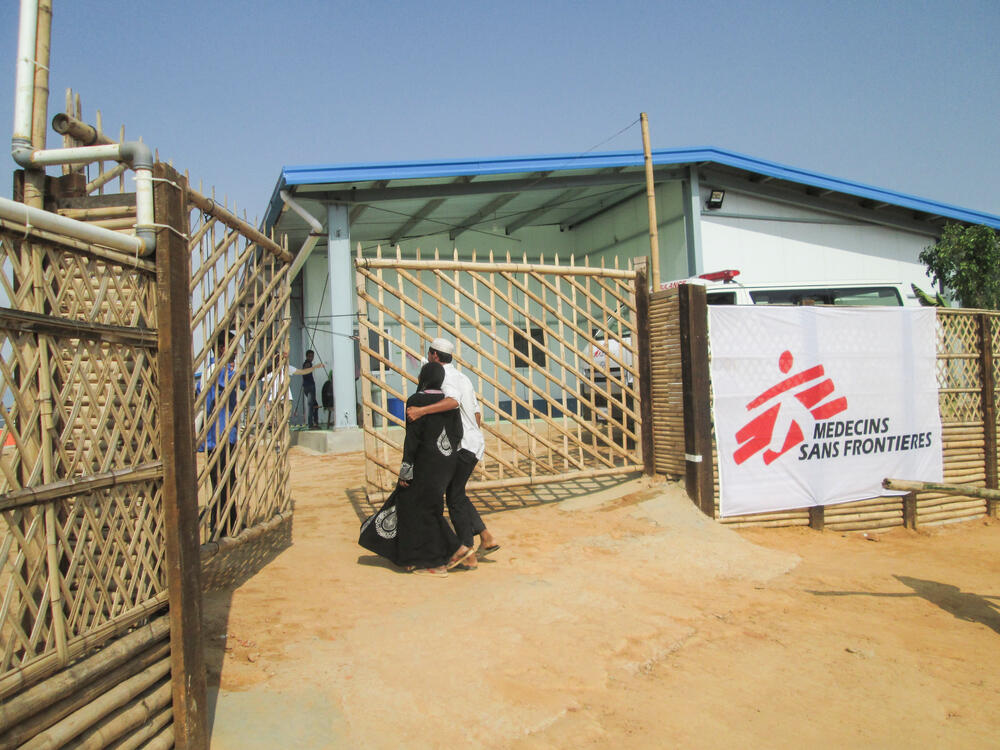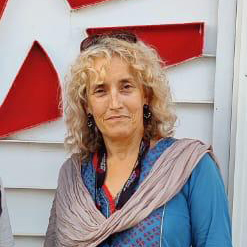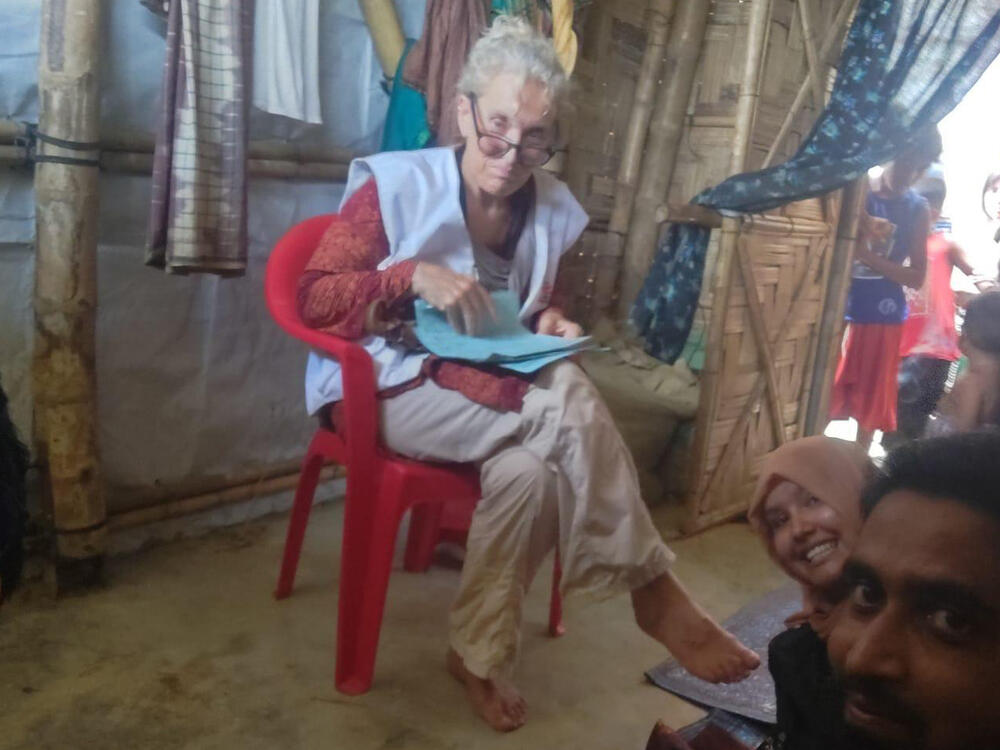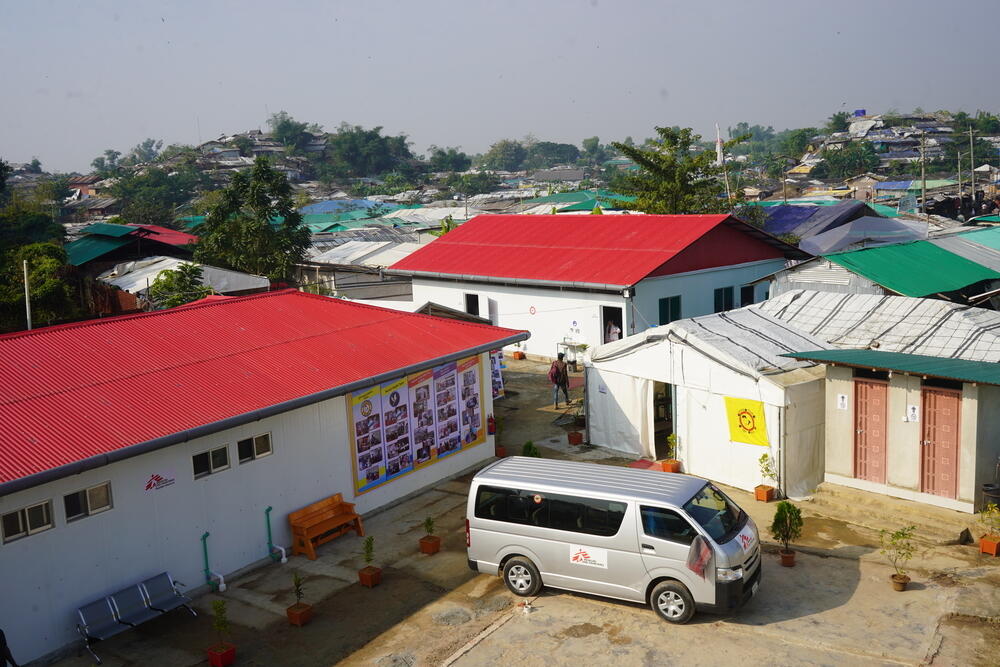Providing psychiatric care in the world's biggest refugee camp
When MSF psychiatrist Ruth Marshall is called to make a home visit to a young woman experiencing psychosis in Balukhali refugee camp, even diagnosis is a challenge. But with the support of MSF’s dedicated mental health team, progress is possible.
"Approximately 1.3 million refugees live in Cox’s Bazar, the site of the largest refugee camp in the world.
At the Balukhali clinic just inside the camp, MSF’s team of counsellors and social workers provide mental health services to the Rohingya people as well as to the local Bangladeshi population.
The Rohingya are a stateless ethnic group and one of the most persecuted minorities in the world. Due to ongoing violence and persecution in Myanmar, hundreds of thousands of Rohingya have fled to neighbouring countries such as Bangladesh either by land or boat over the course of many decades.
In my role I saw up to 40 patients each day, presenting with a range of mental health conditions. Many had chronic mental illness, including psychosis, anxiety and depression. The effects of trauma were common and profound, affecting all aspects of people’s lives.
The stories we heard were hard to listen to, with many dating from the Rohingya people’s experiences of persecution in Myanmar. Even after fleeing to Bangladesh, many patients had faced violence, trafficking, abduction and loss within the camps. Many felt hopeless, with little prospect of returning home.
Navigating the camp
Salma*, a young woman living in the camp, had been seen by the outreach team. She was very distressed, struggling to take care of herself, not eating, and hardly drinking. She was leaving her shelter, talking to herself, and believed people were trying to harm her. Women in the camps aren’t expected to leave the home without being accompanied.
Salma lived with her extended family, including her young nieces and nephews. Two other members of the family had serious mental illness and were already under the care of MSF’s mental health services in the camp. The outreach team came to ask if we could help.
Salma was too unwell to attend the clinic so we agreed that I would go and see her at her shelter later that day. I set off with a team of two social workers and a counsellor.
Heading into the camp from the clinic was an experience I won’t forget. There was a maze of alleyways, initially through makeshift markets where people were selling produce in closely packed stalls and on the floor.
There were open drains throughout the camp and many people, mainly men, walking or sitting in any available space. I was struck by how little open space there was anywhere. The smell of drains and rubbish everywhere was overwhelming, as was the heat.
It was incredible how the social workers knew the way. They skilfully negotiated the alleys and paths, seemingly unaffected by the heat, without a single wrong turn.
A difficult assessment
When we arrived, we were greeted by Salma’s brother who said that his sister was scared and would be unlikely to agree to see us. Various members of the family emerged, including two young children who stood staring at us, the younger from behind their mother’s legs.
The family had one room with a dirt floor, bamboo leaves woven as walls and no electricity. Once our eyes had become adjusted to the darkness I was aware of the young woman crouched down and cowering in the corner of the room.
Salma was obviously dishevelled and very thin. She looked scared. She was mumbling to herself and screaming intermittently.
Her brother told the team that she had been like this for some time and he didn’t know what to do. He couldn’t manage all the caring responsibilities he had and was fearful for the future and for his sister’s safety.
Salma had been married but her husband had sent her home when she had become unwell, and they were divorcing. She had no contact with her children who had remained with her husband’s family.
There was very little assessment that we could do and the information from the family was limited. But it was clear that we needed to provide some treatment to reduce the young woman’s distress.
In the UK if we met with a patient like Salma we would admit them to the hospital. We’d complete further assessments including brain scans and blood tests to see if there was any underlying physical cause of their symptoms before commencing treatment for mental illness.
Most of these options weren’t available so I had to accept that we needed to make the assessment based on what we could see.
On balance, I decided it was likely that Salma had a psychotic illness and that medication would at least reduce her distress.
We left the family with the medicines and arranged for her brother to bring her to clinic if he could the next week.
Making daily life more manageable
The following week Salma and her brother arrived at the clinic together. She was dressed appropriately and looked clean. Her brother reported that she had started to settle a couple of days after taking the medication and was managing to stay at home.
She was eating and drinking better, had stopped screaming and appeared less distressed. Although she remained a little guarded, she managed to engage a little with the counsellor, saying she felt better. She did not appear to be acutely psychotic.
We prescribed more anti-psychotic medication and arranged to see her again the next week.
From then on, Salma attended every appointment, always accompanied by her brother who continued to report improvements in her mental state. At each appointment, she engaged a bit better and took her medication regularly. She started to be able to look after herself and manage the tasks of daily living again.
Salma will continue to be followed up by the team at the clinic. My hope is that, with ongoing support from the team, she will continue to progress and that eventually she will be able to manage without regular medication.
Salma’s wish was to be able to see her children again.
During my time in Bangladesh I worked with many people like Salma, stuck in limbo, in dire living conditions, struggling with a situation that cannot be imagined by most of us in the UK.
The gratitude and appreciation that the team received from our limited interventions made me feel so humbled. It was hard not to always think about how unequal the world is.
But at the same time, always present in my mind was how important the work of MSF and other humanitarian organisations is for people in these desperate situations, particularly in the often neglected field of mental health."
* Name has been changed
MSF in Bangladesh
Dire, overcrowded living conditions, a lack of basic services and a complete reliance on humanitarian aid are taking a toll on both refugees and the host community in Bangladesh.
Médecins Sans Frontières / Doctors Without Borders (MSF) provides medical services through multiple health facilities in Bangladesh, primarily serving Rohingya refugees and host communities in Cox’s Bazar and the capital, Dhaka.



